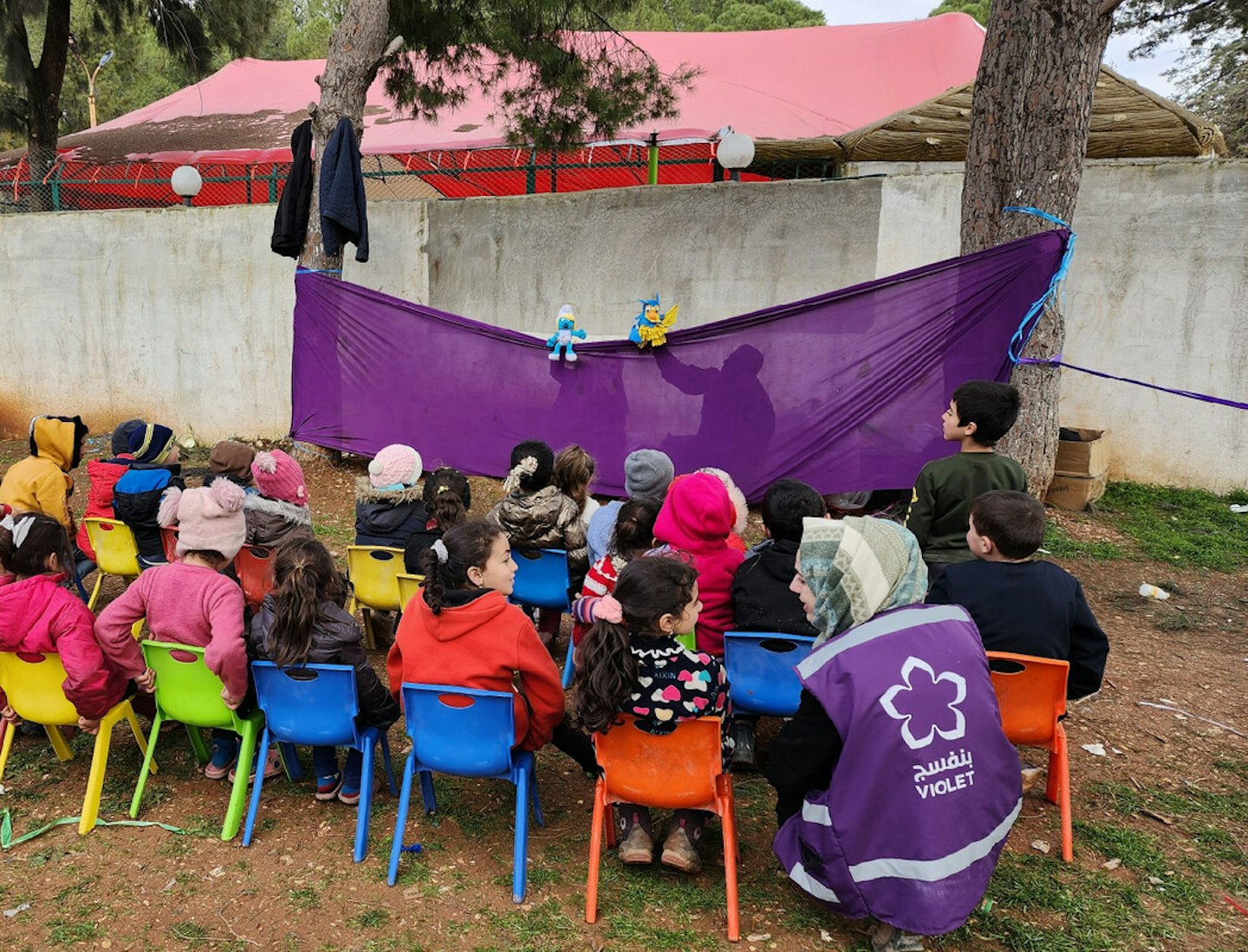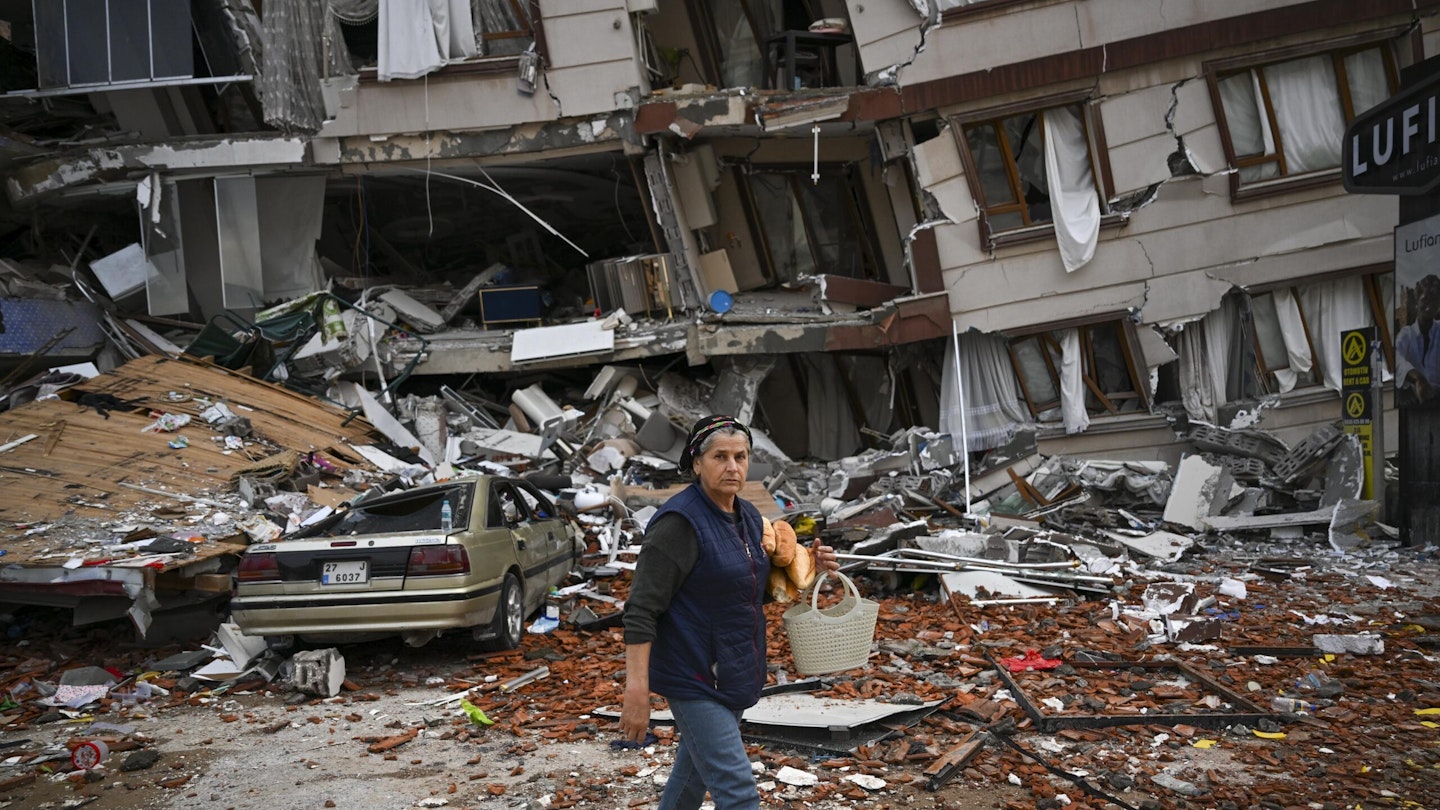It’s been just over a week since Turkey and parts of Northern Syria were devastated by a seismic earthquake measuring 7.8 on the magnitude scale, thought to be the strongest ever recorded in the region.
And as the window for survival closes and the death toll surpasses 35,000 – more than double that of a similarly-sized tremor in the same area in 1999 - much of the rescue efforts are now focused on managing the humanitarian crisis left in the wake of the incomprehensible destruction of millions of homes, lives and families. And as ever, women and girls are disproportionately affected, whether that be from an increased risk of domestic and other forms of gender-based violence or simply having their particular needs overlooked by emergency relief policies.
‘In our experience of working on the ground in crises, domestic violence always increases in emergencies,’ Action Aid’s Sabine Abi Aad, Regional Communication and Campaigns Lead in the Arab Region, tells Grazia. ‘We have special concern about the safety of women and girls and the high risk of gender-based violence that they are facing; they’re vulnerable to sexual exploitation, abuse, having their privacy, their belongings [violated]. Usually in humanitarian emergencies women and girls are left behind and their needs are not fulfilled.’
Sabine has been working closely with those on the ground, specifically their partner organisation Violet Org, in North-western Syria, an area already ravaged by conflict and harsh conditions. She tells Grazia that there’s recently been a cholera outbreak in the region, and that those affected by the earthquake have already been displaced many times before.

‘It’s a crisis on top of crisis, trauma on top of trauma,’ she says. ‘In this situation it’s really alarming because the homes of women and girls have been destructed many times. It’s not the first time they face this. They don’t have the provisions. For example girls who are menstruating, pregnant or breast-feeding have particular needs and we are trying to respond to the urgent needs of women and children who’ve been affected and will continue doing so in the coming days weeks and months because it will be a critical period.’
She adds that the charity ‘should be prepared’ for the full scale of women in need of support to become clear after the emergency response, adding that ‘from our work in Lebanon [where Sabine is currently based], when Syrian refugees come there’s a very high number of child marriages’, an additional factor to navigate in the rehabilitation of displaced people in the region.
While Action Aid is providing safe spaces for women and girls to access sanitary products, pre and post-natal support and to breastfeed and wash their children, Sabine is keen to point out that emotional support is an ‘urgent’ need of survivors.
‘We already had safe spaces in Syria but now we’re reviving them because the needs now are different,’ she explains. ‘Now there are additional needs to be fulfilled in these spaces.
‘After the Beirut blast in Lebanon [in 2020], we were on the ground [offering emotional assistance]. People were traumatised and they needed this kind of support. It’s one of their most urgent needs - not only providing medicine or food or shelter. We’re trying to find solution for women to come to our safe spaces to ask for help.’
In a country already overwhelmed by conflict, disease and harsh weather conditions – many of the photos coming from Northwestern Syria show families huddled round fires to keep warm in snowy conditions – even Government controlled areas were suffering from their hospitals and health centres being overwhelmed by a demand far outweighing supply. Sabine recalls ‘one horror story’ of a girl who, after being rescued following days buried in wreckage, was unable to find a hospital bed to be treated for her injuries. While this particular girl was ‘lucky in the end’ and was able to find a hospital bed, a lack of medical provisions and staff will be an ongoing battle for the emergency relief efforts.
‘Now several medical facilities in northwest Syria in government-controlled areas have been badly damaged in the aftermath of the earthquake, and those that are still running are overwhelmed with tens of thousands of survivors requiring urgent medical attention and putting immense pressure on overworked medical staff,’ she says. ‘That means that women and girls who were already lacking access to healthcare will face further barriers.’
How to help victims of the Turkey-Syria earthquake
While those on the ground continue to pull bodies from the wreckage and families turn their attentions to treating their injured and burying the dead, it's easy to feel helpless from the other side of the world, but there are things you can do to support emergency relief efforts for those affected.
Firstly, the DEC (Disasters Emergency Committee) launched it's official appeal to send financial aid to victims last week, which you can donate tohere.Alternatively, the fifteen member charities that the committee is made up of, including action aid, are also running their own individual appeals.
Keep an eye on local community forums for organisations delivering supplies directly to the disaster zone, but remember that cash donations are best and can be used as those on the ground see best fit. Finally, ensure you are sharing verified information and not contributing to fake news by following this guide from academic journal The Conversation.
